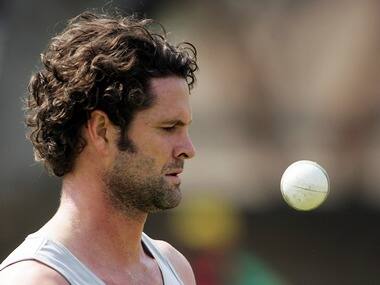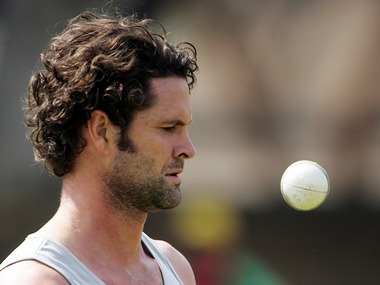It’s an interesting day, as Arun Jaitley says he has sent a defamation notice to NRI businessman Anshuman Mishra for making what Jaitley called “baseless allegations.” As this is written, Anshuman Mishra, having received the notice from Jaitley, has withdrawn the allegations and has apologised. In another development, the officer accused of offering the army chief a bribe of Rs. 14 crore, Lt Gen Tejinder Singh,
denies
that he had done so and says that he is going to take legal action. [caption id=“attachment_256121” align=“alignleft” width=“380” caption=“Reuters”]
 [/caption] This is not the first time we have heard a ‘victim’ threatening to take an ‘offender’ to court for defamation, but such actions are rare – and they need to become more and more common. We’re seeing too much of seemingly baseless allegations. Even if some of these allegations are rooted, broadly, in fact, they often skirt becoming defamatory statements. Take this one, from an interview of Digvijay Singh by CNNIBN editor-in-chief Rajdeep Sardesai. Rajdeep Sardesai: And you believe that Narendra Modi must apologise for 2002, that he must express remorse? Digvijaya Singh: Yes, of course yes. He has been instrumental in these riots, he asked his officers and there is an evidence (sic). A police officer has been given an oath that he instructed them not to intervene. Digvijay Singh is categoric in his statement. Modi ‘has been’, he ‘asked’ officers and ‘there is’ evidence. When Singh makes statements like this, we, the citizens, need to know whether he is right or wrong. While the matter regarding Modi’s alleged involvement in the riots is in the courts, what stops Modi from suing Singh for libel? As another Modi has been sued – and has lost. Lalit Modi, who tweeted on the involvement of Chris Cairns in match-fixing, has lost a libel case in the courts in the UK, and has been
ordered
to pay damages of GBP 90,000. It is actions such as Cairns’ which make it difficult for people to make allegations and accusations in public with no (or little basis). We need more libel and defamation actions, need more individuals to win and lose large sums of money for irresponsible statements in public. Even if it means prime time news will no longer be as entertaining.
[/caption] This is not the first time we have heard a ‘victim’ threatening to take an ‘offender’ to court for defamation, but such actions are rare – and they need to become more and more common. We’re seeing too much of seemingly baseless allegations. Even if some of these allegations are rooted, broadly, in fact, they often skirt becoming defamatory statements. Take this one, from an interview of Digvijay Singh by CNNIBN editor-in-chief Rajdeep Sardesai. Rajdeep Sardesai: And you believe that Narendra Modi must apologise for 2002, that he must express remorse? Digvijaya Singh: Yes, of course yes. He has been instrumental in these riots, he asked his officers and there is an evidence (sic). A police officer has been given an oath that he instructed them not to intervene. Digvijay Singh is categoric in his statement. Modi ‘has been’, he ‘asked’ officers and ‘there is’ evidence. When Singh makes statements like this, we, the citizens, need to know whether he is right or wrong. While the matter regarding Modi’s alleged involvement in the riots is in the courts, what stops Modi from suing Singh for libel? As another Modi has been sued – and has lost. Lalit Modi, who tweeted on the involvement of Chris Cairns in match-fixing, has lost a libel case in the courts in the UK, and has been
ordered
to pay damages of GBP 90,000. It is actions such as Cairns’ which make it difficult for people to make allegations and accusations in public with no (or little basis). We need more libel and defamation actions, need more individuals to win and lose large sums of money for irresponsible statements in public. Even if it means prime time news will no longer be as entertaining.
Anant Rangaswami was, until recently, the editor of Campaign India magazine, of which Anant was also the founding editor. Campaign India is now arguably India's most respected publication in the advertising and media space. Anant has over 20 years experience in media and advertising. He began in Madras, for STAR TV, moving on as Regional Manager, South for Sony’s SET and finally as Chief Manager at BCCL’s Times Television and Times FM. He then moved to advertising, rising to the post of Associate Vice President at TBWA India. Anant then made the leap into journalism, taking over as editor of what is now Campaign India's competitive publication, Impact. Anant teaches regularly and is a prolific blogger and author of Watching from the sidelines.
)